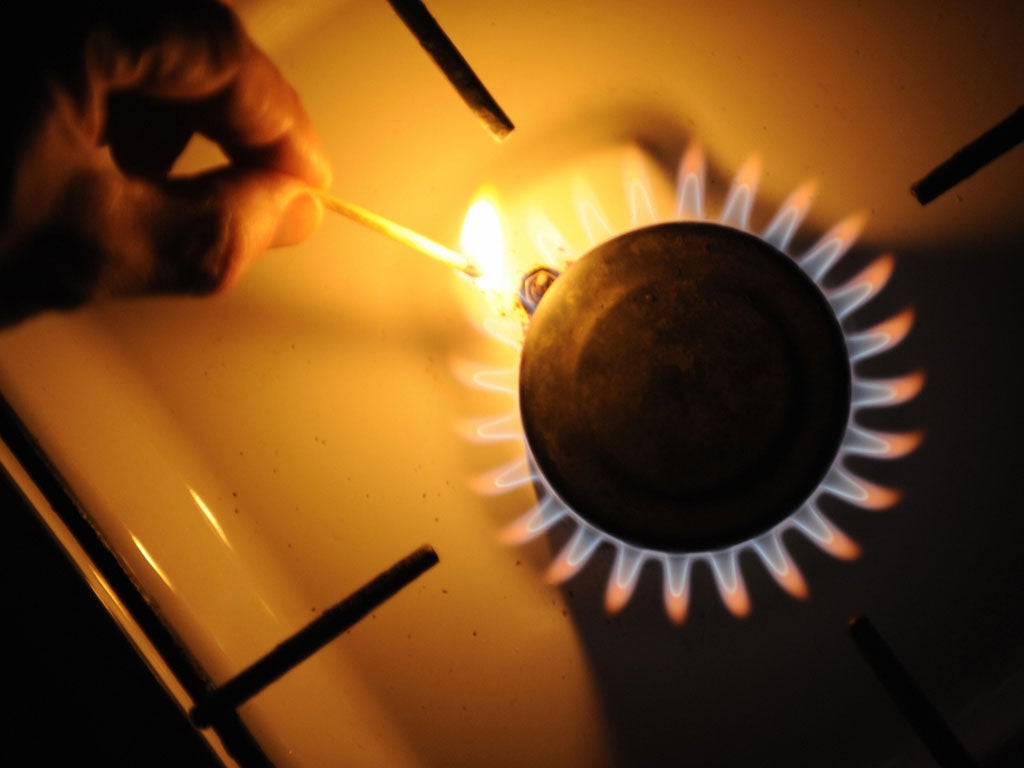Kate Hughes: Energy firms' excuses are just hot air again

The British public has a strange relationship with energy companies, indeed all utility providers.
Perhaps because we're so used to government-funded services in every other aspect of our lives, we somehow forget that these are commercial businesses after a profit. We seem genuinely surprised that the "Big Six "are using every possible excuse to account for the above- inflation price hikes consumers have been absorbing for years now.
Why else would it take so long for us, and the Energy and Climate Change Committee in particular, to look more closely at the "wholesale price increases are forcing us to up the costs to the consumer" line they've been hiding behind for years?
In fact, according to Ofgem's supply markets indicators for dual fuel, wholesale prices in general, which account for less than half your average energy provider's operating costs, haven't really changed in the past few years. In October 2011, against a typical customer's household bill of £1,235, wholesale prices for the equivalent units of energy were coming in at around £585. Two years later, we're up to £1,320 a year in end-user energy bills and yet the equivalent wholesale prices have only crept up to about £610.
It's no surprise Ofgem estimates the average net profit has doubled in the last year to £95 a household. Forget the complex nuances of forward buying, or different prices for different suppliers – in general, wholesale prices aren't expected to rise significantly in the coming year and probably by less than the rate of inflation, despite the latest eye- watering consumer bill hikes.
And yet the big bosses doggedly stick to their story. No wonder MPs, independent energy bosses and above all the Great British Public are confused and distrusting.
So what happens now? Probably nothing for quite some time, I'm afraid – and, of course, the Big Six know that. The correct response, as Which? executive director Richard Lloyd said, would be to announce plans for structural reforms that separate the wholesale-energy market from domestic supply while the Government cuts the costs its policies add to consumers' bills.
So far, however, all we've seen is a pledge to cut provider switching time, a bid to push regulators to simply do their job, a stern word about refunding direct-debit overpayments, and, inevitably, promises of another review.
They're not really a massive help for the 22 million households who will be rationing their energy use to curb the effects of the latest increases that will take our costs to an average £1,434 a year assuming the last two major players do nothing – which we know from bitter experience is highly unlikely.
With the increasing expense of sourcing fossil fuels and historical impotence when it comes to bringing the Big Six into line, this week's disappointingly low-key battle is little more than a peek into both the medium and long-term future. Break out the draught excluders and the extra jumpers – we can't afford to wait for Westminster.
Schools: The postcode lottery for parents
It's incredibly easy to pull out the doom and gloom stats from pretty much anything. Trust us, we're practised at it. But despite the headline that parents will pay a house price premium of £31,500 to live close to a top state school, in fact a third of the top 30 state schools in the country have catchment areas in locations where the average price is below those of their neighbours, according to research by Lloyds Bank.
So while it will indeed cost you an 87 per cent premium to install little Jonny in a new pad near the Henrietta Barnett School in North London, properties in the postal district of King Edward V1 Handsworth School in Birmingham are 42 per cent below the county average.
Nor can you mutter about the North-South divide in return for this news, because the North West has the largest house price premium around its top ten state schools, followed by Yorkshire and the Humber
Subscribe to Independent Premium to bookmark this article
Want to bookmark your favourite articles and stories to read or reference later? Start your Independent Premium subscription today.

Join our commenting forum
Join thought-provoking conversations, follow other Independent readers and see their replies